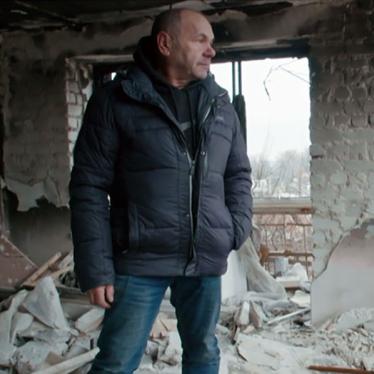“China is an indispensable partner of Brazil,” Foreign Affairs Minister Mauro Vieira told the media, when asked about President Lula’s plans to visit China in March. An “important part” of the trip, Vieira said, will be the “political signal that will be given.”
During President Lula’s first terms in office, from 2003 to 2010, he embraced China as central to reforming what he considered an unjust global order. He deepened relationships with other Global South governments, and intertwined the Chinese and Brazilian economies.
He appears to be charting a similar course now, pledging to strengthen BRICS—a group of emerging economies that include Brazil, Russia and China—and construct “a new global order committed to multilateralism.”
But President Lula has also articulated a politics of social justice and human rights. If he wants to align his foreign policy with that, he cannot cozy up to China, remaining silent about its abuses. The Brazilian constitution obligates the government to defend human rights as a pillar of foreign policy. This would include, of course, the country’s relationship with China. That’s the political signal President Lula should give.
Under President Xi Jinping’s leadership since 2013, the Chinese government has deepened repression across China. In Xinjiang, the authorities have arbitrarily detained and imprisoned an estimated one million Uyghurs in “political education camps” and prisons, where some are tortured. They have separated children from their families, built dystopian mass surveillance systems that catch people they deem “untrustworthy,” and sought to erase Turkic Muslim religion and culture. These abuses are so widespread and severe that the United Nations human rights office says they “may constitute international crimes, in particular crimes against humanity.”
Beijing is also hollowing out Tibetans’ language, culture, and religion, and has rapidly dismantled Hong Kong’s freedoms. In February, the authorities in Hong Kong began the largest trial yet under a draconian national security law: 47 prominent former legislators, elected officials, and activists face up to life in prison for holding an unofficial party primary. As someone who recently survived efforts to overthrow Brazil’s democracy, President Lula should stand up for those who fight for democracy elsewhere.
Throughout mainland China, the authorities are ratcheting up ideological and social control, imprisoning, harassing, and intimidating anyone who criticizes the administration. The government has long prohibited independent labor unions, and in 2019, the authorities arrested scores of young labor rights activists, including students, and crushed what remained of labor activism in China.
Brazil’s previous administration of President Jair Bolsonaro did not speak out against China’s deteriorating human rights record. In 2019, it declined to sign on to a joint statement at the UN to condemn the abuses in Xinjiang. In 2022, two months after the UN human rights office released its damning Xinjiang report, it abstained on a resolution that would have allowed the UN Human Rights Council to discuss the human rights situation in Xinjiang. The resolution was defeated by a narrow margin of 17 for to 19 against: Brazil’s abstention undermined the credibility of the Human Rights Council—and helped China whitewash its abuses.
President Lula can do better. He can distance himself from his predecessor’s foreign policy that was indifferent, at best, to human rights. The dance will be a tricky one, considering that China is Brazil’s most important trading partner. But both partners in a trade relationship hold powerful cards. Brazil does not need to move away from its values to sustain its economic relationships, especially considering its big consumer market and wealth of natural resources—and the leadership role it plays in Latin America.
Brazil should take care not to become overly reliant on an abusive, powerful, and dictatorial government. As he starts a new term in office, President Lula needs to assert that the governments of Brazil and China do not share the same values.
Beijing wields growing power over the many developing countries for which China has become the biggest lender and trading partner. Although Beijing claims it is promoting the interests of the Global South, it has, in at least one instance, used that power to strongarm a government, threatening to withhold Covid-19 vaccines if Ukraine voted for more scrutiny of rights abuses in Xinjiang at the Human Rights Council.
As Brazil reemerges on the global stage, the Lula administration should take confident steps to reaffirm its human rights commitments. It should work with like-minded governments, particularly those in the Global South, to strengthen the international human rights system, an indispensable pillar of multilateralism. This would entail, at the very least, putting China’s abuses on the table at the Human Rights Council, and pressing for the release of arbitrarily detained human rights defenders, labor unionists, and activists.
Millions in Brazil, China, and worldwide will be watching as President Lula travels to China. He needs to seize the opportunity to speak out.
The rights of everyone in China, from ordinary workers, to members of ethnic minorities, to embattled activists, are at stake. President Lula’s credibility as a global leader is at stake, too.











